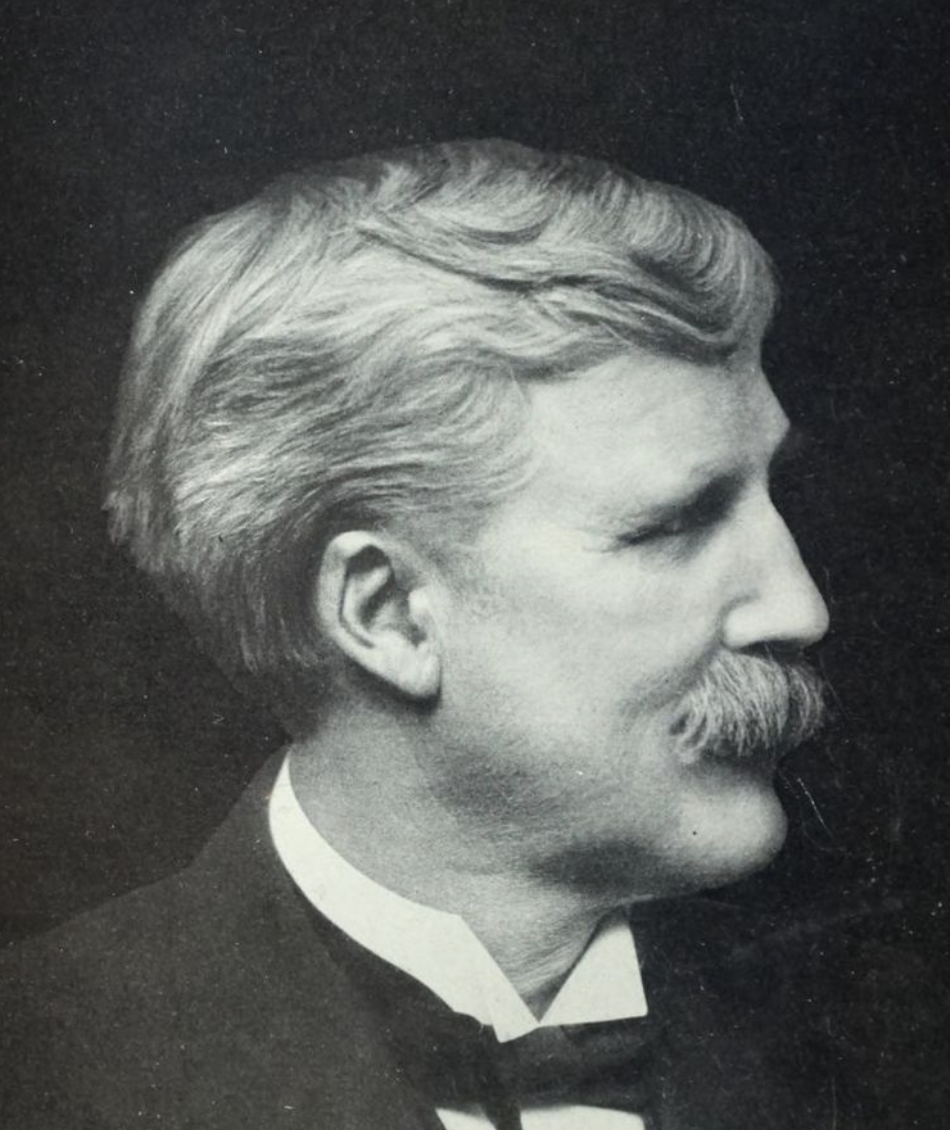Your Mother and I had been married on the afternoon of March third, 1886, in her home at Racine, Wisconsin. It was a simple and quiet wedding. The guests, all informally invited, were Mother’s intimate friends, and the few and tasteful gifts were expressions of close personal affection. Our announcement cards, however, were sent to a wide circle of friends and acquaintances in Racine and elsewhere, and to my entire congregation in Minneapolis.
1 brought your mother to our parsonage in Minneapolis, which was at that time rented to Deacon and Mrs. Crooker, and we took rooms reserved for us there, boarding at Mrs. Crooker’s table, and so began our married life.
A few months later Auntie came in response to our need and urgency, to take up her temporary abode with us. But we could never afterwards spare her, either from our hearts or our home, and up to the hour of her peaceful death on March twenty-sixth, 1926, she was an indispensable member of our family, equally loving and beloved. It is impossible for us to picture our family without Auntie in the dominant group of three, a present help in time of trouble, felt by every member of the family to be his own particular friend and reliance. The home which she did so much to make for us all was always as truly and rightfully her own as ours.
Perhaps it will be as convenient here as elsewhere to record formally the births of our children:
FREDERICK LamONT, born at Minneapolis, Minnesota, December seventeenth, 1886.
FRANKLIN Herbert, born at Minneapolis, Minnesota, July thirteenth, 1888.
RUSSELL Cahoon, born at Morgan Park, Illinois, June fifteenth, 1890.
ALICE FLORENCE, born at Montclair, New Jersey, October twentieth, 1891.
LUCIA Louise, born at Montclair, New Jersey, November twelfth, 1893.
GRACE Lucile, born at Montclair, New Jersey, July tenth, 1895.
PERCIVAL TAYLOR, born at Montclair, New Jersey, January third, 1897.
Seven in eleven years. Note the close birth dates—about two years apart. This tells as almost nothing else could tell so forcibly that our family blood in the twentieth century is, on both sides, the Puritan ancestral blood of the seventeenth and eighteenth centuries, without the least degeneration or dilution. Since 1685 there had been no intermarriage on either side with later arrivals from abroad. Such lists of children were the rule among the Pilgrims and Puritans three centuries ago. I have scanned hundreds like it, though often longer, because the Puritan daughters were accustomed to marry earlier than we did. The earlier marriages, if not too early, are on the whole, I think, to be preferred. But the later marriages of the present day are relieved by some lesser advantages. The parents being older sometimes have more means for the care of their families. Having passed beyond the frivolous age, they are not tempted by pleasures to neglect their young children, or to relegate the care of them to servants, and from more experience of life they may be wiser and more thoughtful in the home training.
From the birth of Frederick in December, 1886, for thirteen years we were not without a toddling baby in the family. This was before the rise of the baby expert with his inexorable and numberless scientific rules of feeding and attendance, enforced often with many a pang to the mother heart. The most experienced doctor of our babies said to us once in despair, “I don’t know anything about babies.”
But in everything except physicians our babies were fortunate. Auntie took lovingly to herself each one of them in turn so soon as the next one arrived, and no one at all but their mother and auntie was permitted to have any care of them. Our children were never turned over to governesses, to servants, or even to nurse girls, and accordingly were never frightened, neglected, deceived, hurt, punished, or threatened. They experienced nothing at all but tenderness and protection, and grew up happy, trustful, and unafraid, feeling that everyone was a friend. Just as soon as they could be tied into a high chair, they were brought to the table, and always thereafter ate with the family. We had frequent guests, often persons of distinction, to whom a table full of children was an unaccustomed sight. For our full table was as pleasing as it was novel, for our children, whose table manners had become second nature, never gave us the least embarrassment in the presence of guests. Freighted as I was with heavy cares, Mother and Auntie relieved me wholly from the distraction of the babies. During all the years I never, but once, lost a night’s sleep, so perfect was their protection of my rest. Nor would they leave the children even temporarily to the care of the servants. For more than a dozen years they arranged never both to leave home at the same time. No duty was deemed by them so imperative, no pleasure so enticing as to justify the violation of this rule.
When I think how the children of royalty, of aristocracy, and of wealth are turned over almost of necessity to irresponsible underlings, and can know little of a parent’s love and care, I realize how fortunate my children were in their infancy and childhood. To that rare good fortune they owe a debt they can never fully know.
Next Section:
Large Families and Family Government
